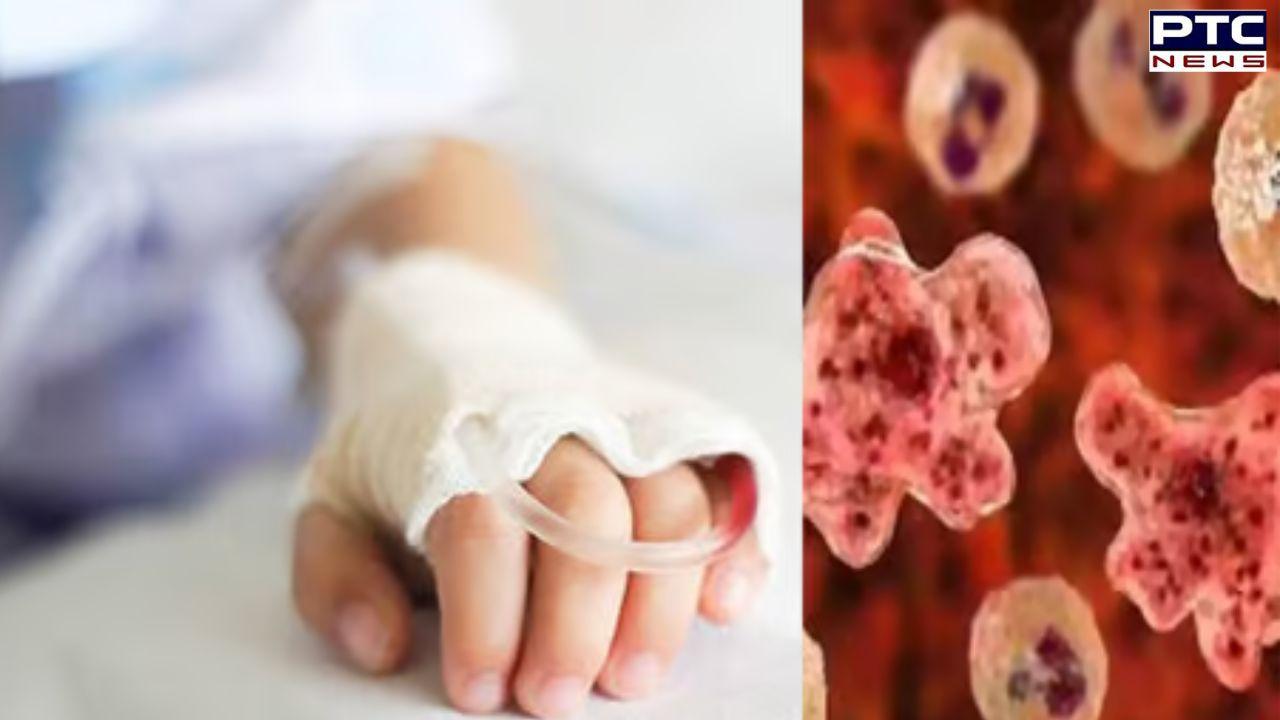

5-year-old Kerala girl dies of brain-eating amoeba; here's all about this rare, severe brain infection
Brain-eating amoeba: A five-year-old girl from Kerala's Malappuram died of a brain infection called amoebic meningoencephalitis at the Government Medical College Hospital in Kozhikode. Fadva had been in treatment since May 13. She was on ventilator support for more than a week, and despite the doctor's best efforts, she passed away. Her condition was caused by the Naegleria fowleri amoeba which is also called “brain-eating amoeba. It is a rare but severe brain infection.
The girl was most likely infected with the fatal amoeba when she took a bath with her relatives in the Kadalundi River near her home on May 1. Four more kids who had a bath in the same river were sent to the hospital but discharged later.
The girl's parents took her to the doctor on May 10 because she complained of a headache and vomiting. After her condition deteriorated, she was transferred to Kozhikode Medical College Hospital.
What is Naegleria fowleri?
Naegleria fowleri is a brain-eating amoeba that inhabits warm freshwater lakes, rivers, unchlorinated pools, hot springs, and, on rare occasions, heated tap water. It can also be found in soil and untreated water. It is referred to as a "brain-eating amoeba" because it results in the fatal brain illness known as primary amoebic meningoencephalitis.
How does it spread?
It can also be found in soil and untreated water. When people swim or dive in water harbouring this amoeba, it can enter their bodies via the nose. According to the Cleveland Clinic, once in the nasal passages, Naegleria fowleri can spread to the brain, producing inflammation of brain tissue and a serious infection known as primary amebic meningoencephalitis. This infection spreads swiftly and can be fatal if not treated immediately.
Symptoms
Headache, fever, nausea, vomiting, and mental state disturbances are some of the symptoms of the illness. These common symptoms may make diagnosis difficult, but they can progress to seizures, hallucinations, coma, and, eventually, death from organ failure. According to the CDC, most patients with PAM die between one to 18 days of symptoms appearing.
Treatments
There are currently no known effective treatments for PAM. Doctors are currently treating the disease with a combination of medications, including amphotericin B, azithromycin, fluconazole, rifampin, miltefosine, and dexamethasone. While infections from this amoeba are rare, it is necessary to take measures such as avoiding warm freshwater activities, using nose clips, and ensuring that water sources are appropriately treated.
- PTC NEWS
